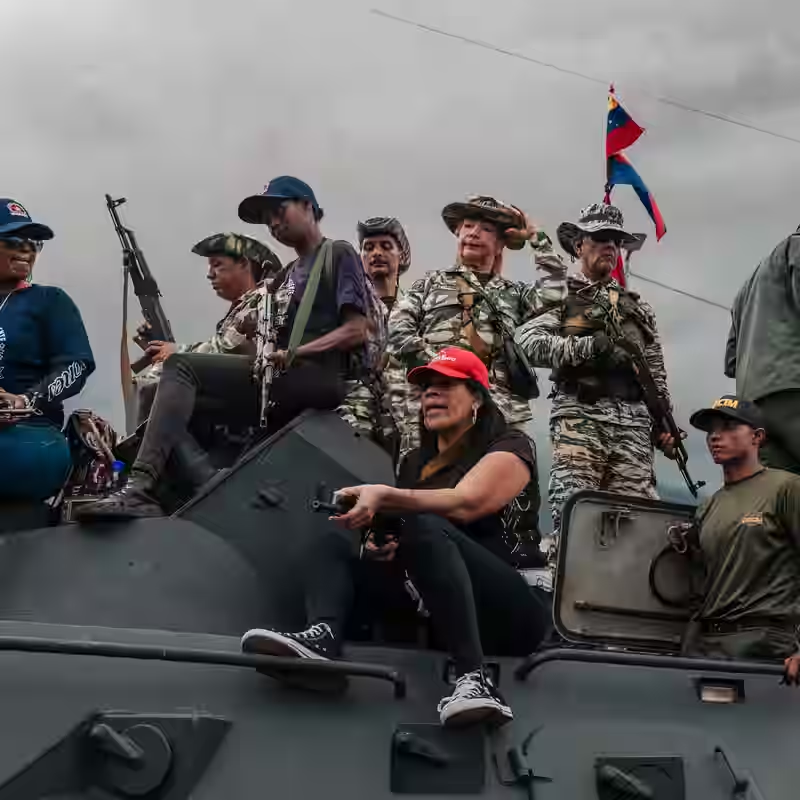Caracas Braces for Conflict as U.S. Military Presence Grows
In a nation already scarred by economic collapse and political repression, Venezuela now faces a new threat: the looming possibility of U.S. military intervention. With American warships patrolling the Caribbean and President Trump issuing public threats against Nicolás Maduro, citizens across the country are caught between fear, hope, and skepticism.

Why Is the U.S. Mobilizing?
The Trump administration claims its military buildup aims to combat drug trafficking, labeling Maduro the head of a ‘terrorist organization.’ However, U.S. data shows:
- Only 10–13% of global cocaine passes through Venezuela
- Fentanyl—the leading cause of U.S. overdose deaths—does not originate in Venezuela
- At least 17 people have been killed in U.S. boat strikes in the Caribbean
Two Venezuelas: Rally vs. Reality
While state-organized rallies feature armed civilians pledging to defend Maduro, daily life in other parts of Caracas continues almost undisturbed:
- Pro-government zones: Bolivarian militia members hold unloaded rifles at mandatory rallies
- Opposition supporters: Hope U.S. pressure forces Maduro out after disputed 2024 election
- Ordinary citizens: Too poor to stockpile food; more worried about birthdays than bombs
Key Players in the Crisis
| Figure | Role | Stance |
|---|---|---|
| Nicolás Maduro | Venezuelan President | Offers “direct talks” with Trump; arms civilians |
| Maria Corina Machado | Opposition Leader | Coordinates with U.S.; plans post-Maduro transition |
| Marco Rubio | U.S. Secretary of State | Advocates hardline military pressure |
| Delcy Rodríguez | Venezuelan Vice President | Calls U.S. actions “illegal”; warns of global war |
“You Kill Maduro, You Turn Venezuela into Haiti”
Many Venezuelans—even those who despise Maduro—fear that U.S. intervention could unleash chaos. As one Caracas businessman warned: “There are oil, gold, and minerals. Remove the central authority, and armed groups will fight for control.”
[INTERNAL_LINK:venezuela-crisis] Analysts stress that without a clear exit strategy or post-conflict plan, military action risks deepening Venezuela’s humanitarian disaster.
Diplomacy vs. Gunboat Policy
Despite tensions, Venezuela still accepts twice-weekly U.S. deportation flights. Some diplomats hope Trump will pivot back to negotiations, offering sanctions relief in exchange for a peaceful transfer of power.




